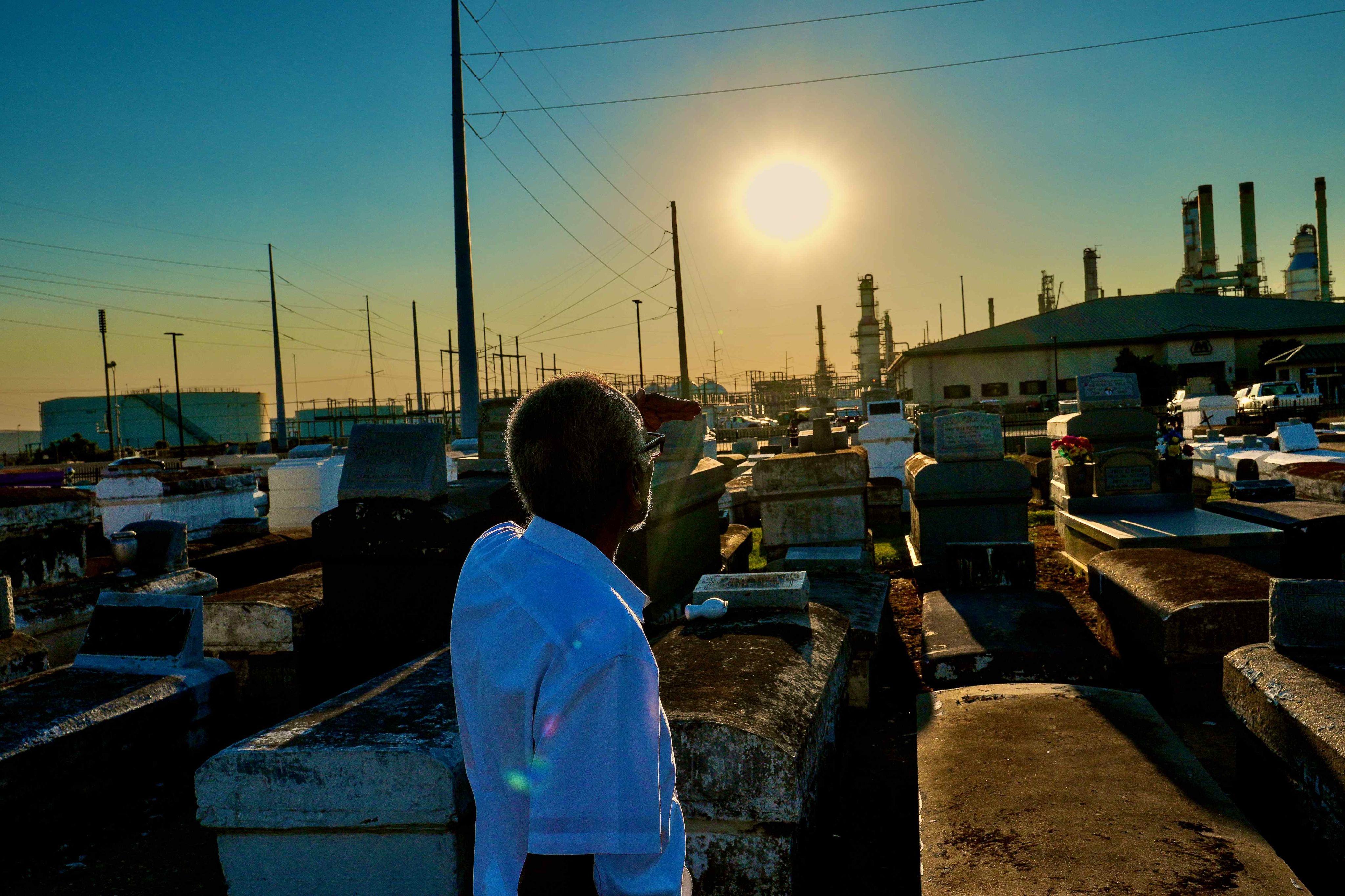Renowned photographer Eli Reed ‘lives in the moment’ — and he thinks you should too
Renowned photographer Eli Reed ‘lives in the moment’ — and he thinks you should too
Reed’s work is currently on display in the School of Journalism and Media Photo Gallery
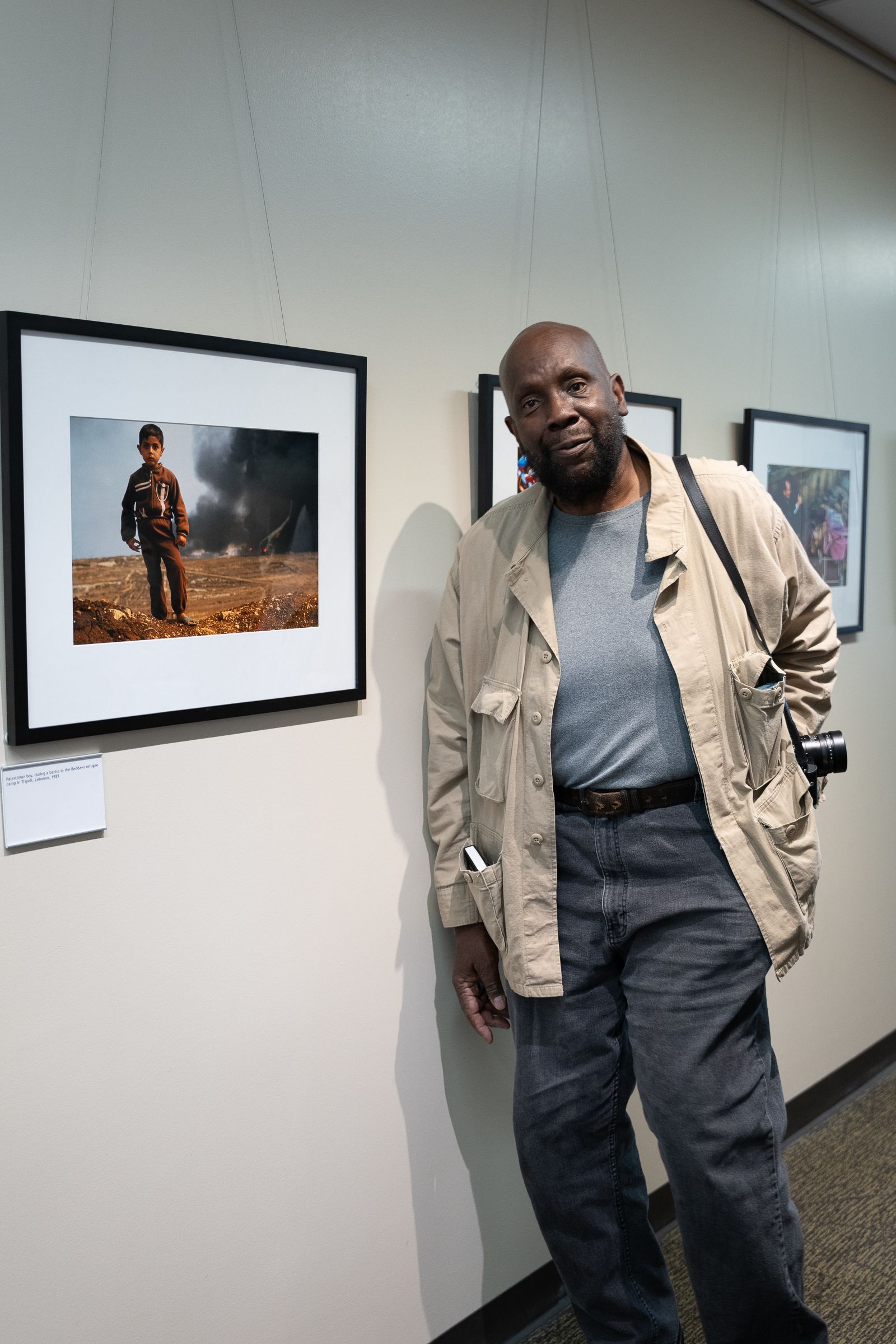
One thing Eli Reed learned over his 50-year career as a photojournalist is the importance of living in the moment. The world-renowned photographer and retired clinical professor in the Moody College of Communication School of Journalism and Media said this personal golden rule has helped him produce photos that capture raw moments of people facing injustices around the world.
“The incident of finding an image is more like the image is finding you,” Reed said before an event last month unveiling his new exhibit at the School of Journalism and Media Photo Gallery. “You just have to be ready to catch it.”
At the gallery opening, dozens of former students, colleagues and young, aspiring photojournalists gathered to honor Reed’s legacy. The exhibit, which is located on the third floor of the Dealey Center for New Media and will be displayed through mid-March, chronicles Reed’s career and includes photos documenting war in Lebanon and the lives of Black people in America as well as portraits of Hollywood stars such as Russell Crowe on the set of the Oscar-winning film “A Beautiful Mind,” among others.
“One encounters the soul of Eli Reed through his images,” said Donna DeCesare, an associate professor of journalism, in her opening remarks at the event. “When the viewer absorbs their full meaning, it is a call to conscience and an invitation to the heart to care for others.”
“One encounters the soul of Eli Reed through his images.”
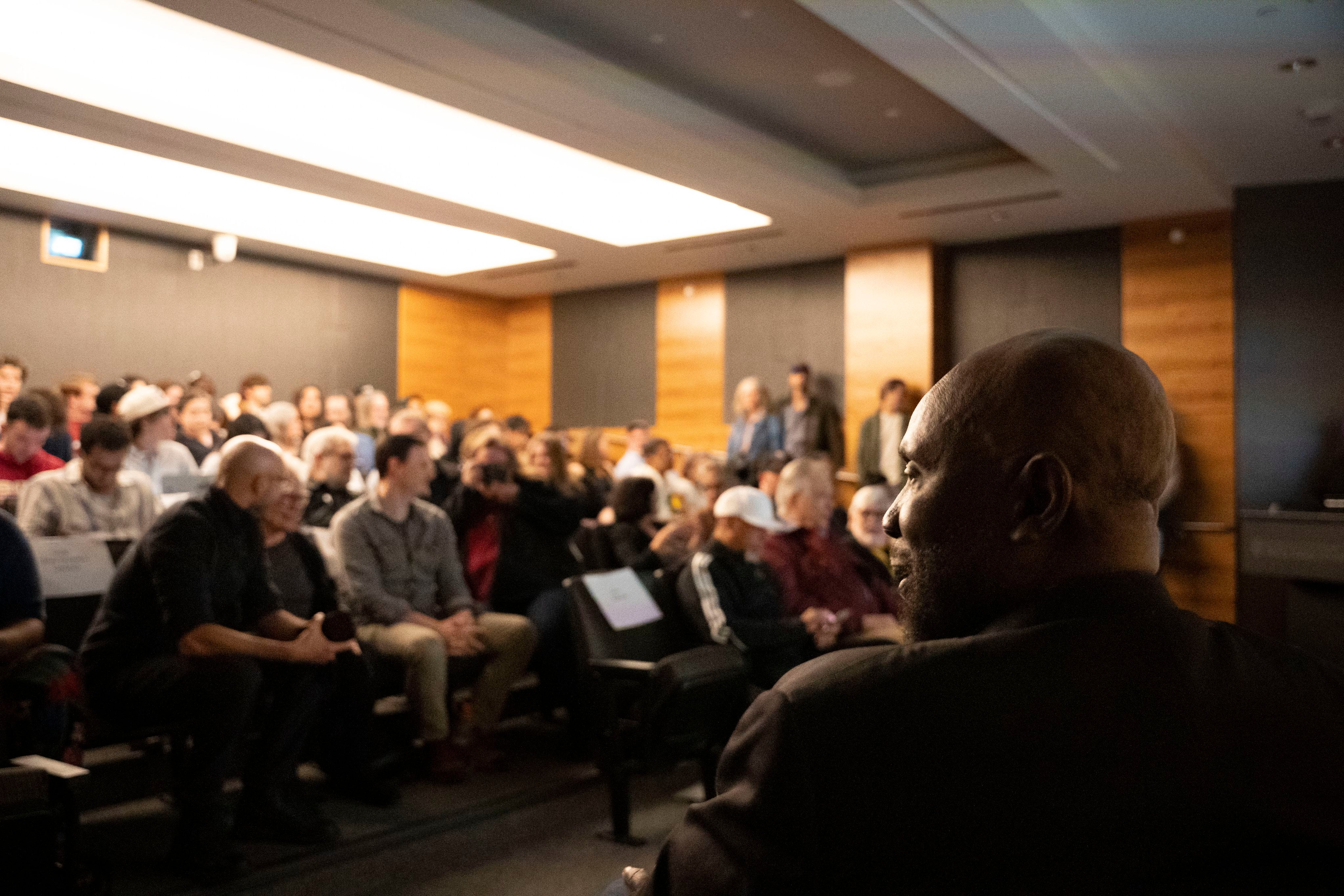
Reed studied political science and public affairs at Harvard University before he began working as a freelance photographer at age 24. He is perhaps most known for his willingness to put himself in harm's way to document atrocities occurring around the world. In the 1980s, he traveled to Africa to photograph the lives of the more than 20,000 young Nuer and Dinka boys escaping violence during the Second Sudanese Civil War, as well as to South America to report on the violence being perpetrated in El Salvador by its own government. One of Reed’s most notable works is his book “Black in America,” which documents race in the U.S.
Reed was nominated for a Pulitzer Prize in 1982 for his work for the San Francisco Examiner photographing people living in housing projects. After years of producing exceptional work, he was inducted in 1988 into Magnum, an exclusive group of photographers from around the world dedicated to social justice.
Reed ended up teaching at Moody College after DeCesare invited him to speak to her photojournalism class. Reed attracted local photojournalists who wanted to hear him speak, DeCesare said, in addition to the 200 students in the classroom. When the journalism school was looking to add another faculty member in 2005, Reed only made sense, which led him to a 16-year teaching career before he retired in 2021.
“Students adored him,” DeCesare said. “He was so supportive. He would edit students' work, encourage them to enter contests, write letters of recommendation, and his name meant a lot, so he was really terrific for our students.”
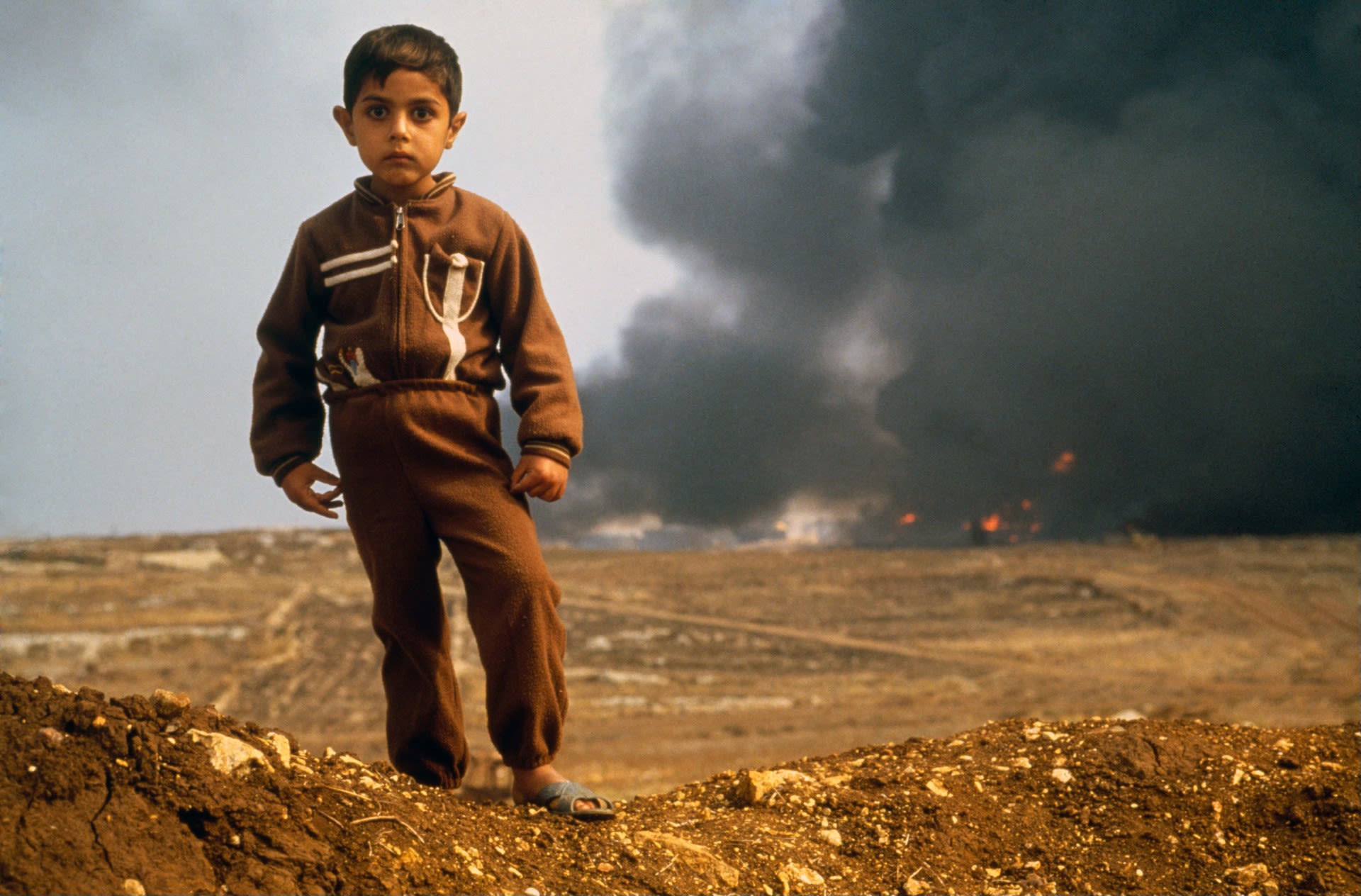
Reed’s former students made up a large chunk of the audience at last month’s opening, showing the tremendous impact he had as a teacher and a mentor while at UT.
Spencer Selvidge, who earned his master’s degree from Moody College in 2012 and now works as a freelance photographer and photojournalist, said Reed gave him confidence in his work.
“He sees things in other people's work that you wouldn't necessarily string together,” Selvidge said. “You don’t even see your own work in the way he did.”
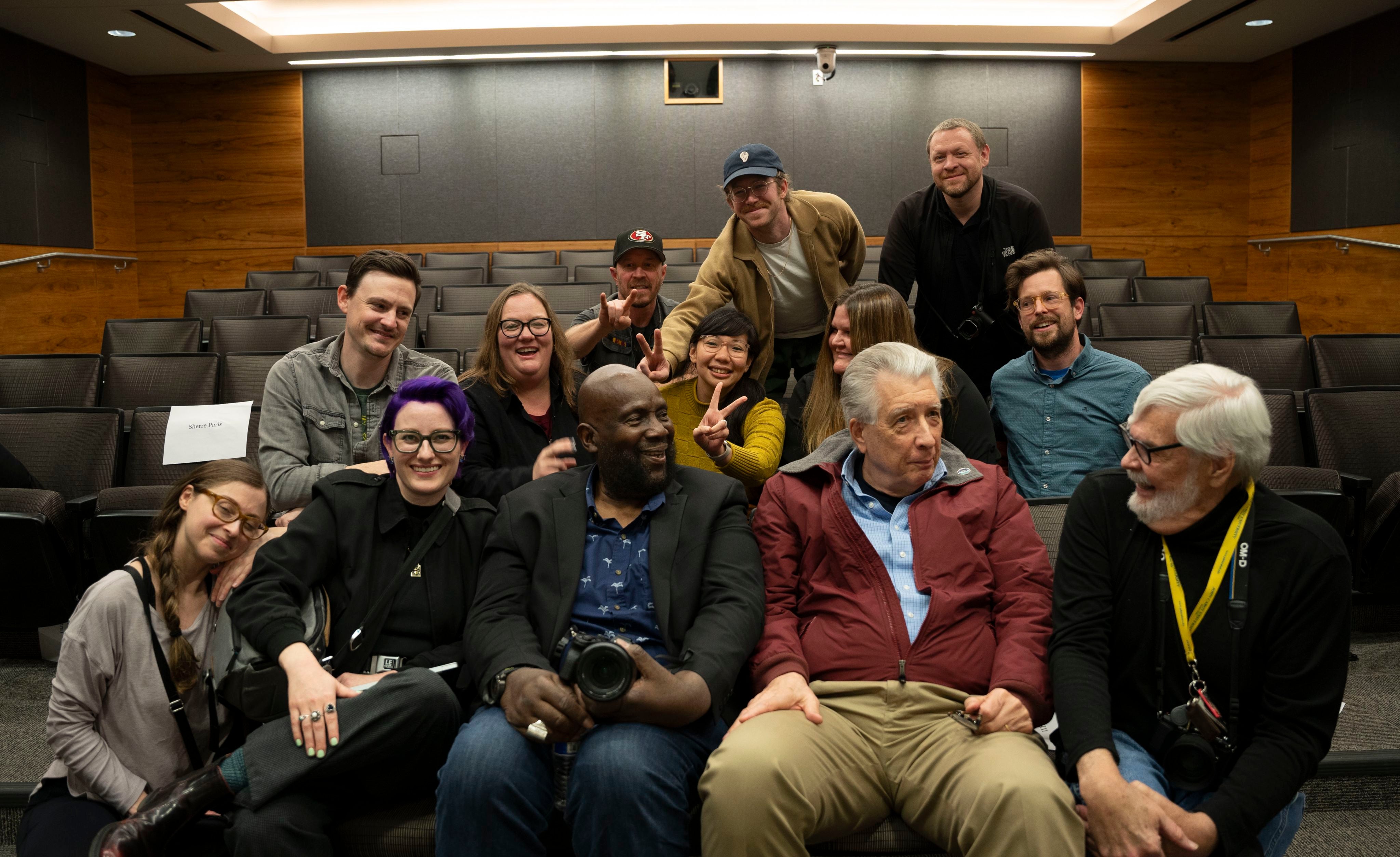
Eli Reed surrounded by his former students and colleagues. Photo by Stephanie Ghandour
Eli Reed surrounded by his former students and colleagues. Photo by Stephanie Ghandour
Marshall Tidrick, who graduated in 2011, said Reed’s advice has stuck with him to this day as a freelance photographer. Reed told him to “zoom with your feet” — moving closer to the subject with your body, not your camera lens — to create a more personal image.
Tidrick said he was surprised he wasn’t familiar with Reed before taking his class and wished he had been introduced to his work earlier.
“It’s very meaningful to have his photographs displayed in the school now,” Tidrick said.
“Don’t look for things you’ve seen before. Go out in the street because real life doesn’t just sit there waiting for you.”
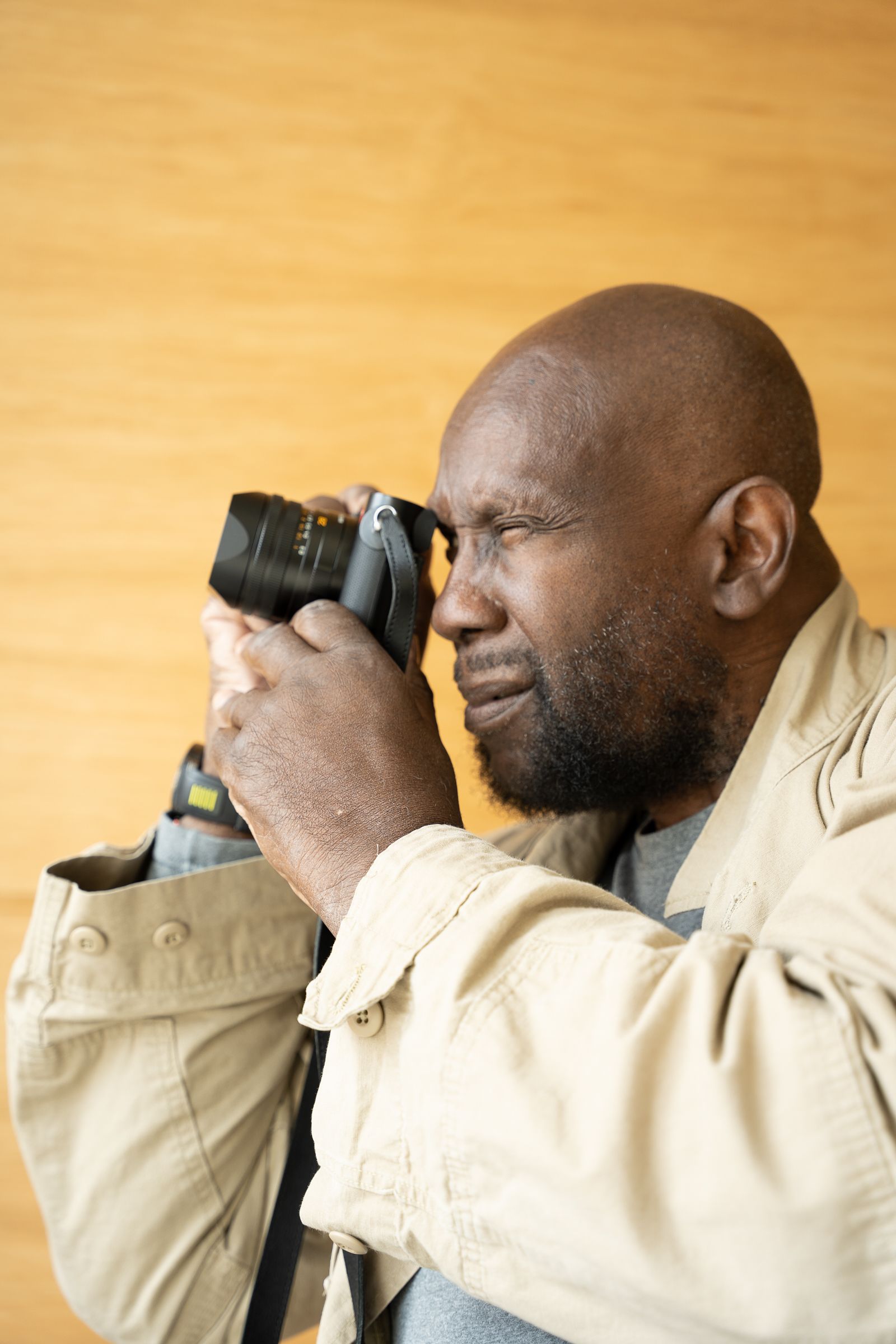
At 77, Reed shows no intention of stopping anytime soon.
In 2020, he captured harrowing photos of people at a funeral ceremony in Houston grieving the murder by police of George Floyd. Just last year, Reed traveled to Louisiana to document “Cancer Alley” for Human Rights Watch. The area includes communities between Baton Rouge and New Orleans surrounded by fossil fuel and petrochemical plants polluting the air, resulting in severe health issues for the people who live there.
Reed got emotional when he talked about this latest project at the exhibit. In his long and successful career, he said he found it one of the most moving and disturbing assignments he’s taken on.
Reed encouraged students in the audience to read and absorb everything they can, and he urged them not to worship the camera but rather what they can do with it. And most importantly, he said, don’t try to plan too much. Go out in the world and take photos as life is happening around you.
“Don’t look for things you’ve seen before,” Reed said. “Go out in the street because real life doesn’t just sit there waiting for you.”
